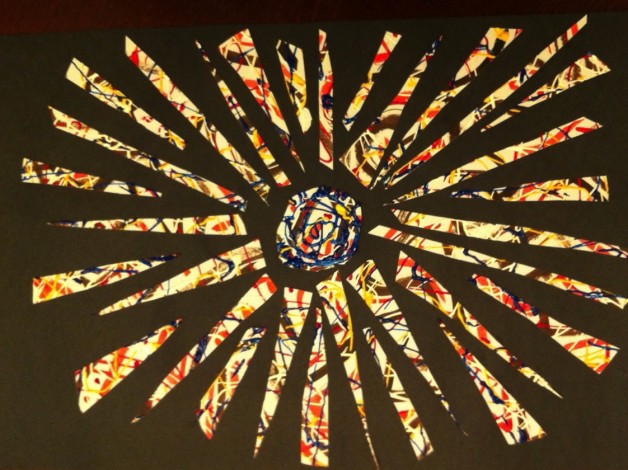
In a recent TED talk, book designer Chip Kidd explores the relationship between form and content based on his 25 years in the business. A book cover, he says, is a “distillation” or “haiku” of the story that should make a reader want to open the book to find out what happens next.
Kidd makes clear that book design is neither superficial nor superfluous. We’re not talking about gift wrap. The design matters not only to sales but also to making sure the promotional messages are consistent with what readers will find in the book. Having a solid product–yeah, product–is crucial. As Kidd says, “Great art can be great business.”
I’m just starting to learn about this process as I revise the manuscript of my first book. Thinking about my book as product gives me a sense of this project as tangible. I honestly haven’t thought a lot about finishing. The routines become comforting. A writer staying lost in her manuscript is the equivalent of the perpetual grad student. If that’s really what you need to do to achieve your goals, great, but if you don’t really have goals and you’re just hogging resources and patience, then move on.
A few weeks ago, the time came for me to face reality and get my manuscript read. It has been in the hands of a very trusted reader for the past month or so, and he will send his response any day now. I can’t emphasize how much I trust this person, but I’m having a weird feeling, as if I’ve just realized that a month ago I emailed pictures of myself in the nude along with PDFs of full-body x-rays, CAT scans, MRIs, and blood test results with a message asking, “So, whaddya think?”
To say getting read feels personal is the most ridiculous form of understatement. Why wouldn’t it be? Here’s this thing I’ve spent four-and-a-half years writing and revising (so far). Over that time, I’ve let my guard down. This work matters to me more than I even understand anymore. I’m not delicate about all of this, but I’m vulnerable, so I’m going to control the process of creating the product as much as I can.
Despite my current bout of kvetching, for most of the past month I haven’t thought much about it. The waiting game has become an exercise in trying to guess what my reader will suggest. Will he remark on the stuff I’ve already thought about adding or changing, or will he have completely different suggestions? And what has he found that I’ve forgotten about or not realized was there?
It’s an interesting exercise that’s helping me make the transition out of vacation mode. The whole point is to dislodge me from the way I’ve been interpreting my own novel. It’s not an undiscovered country (where ideas go to die? where extended metaphors go to thrive?) with only my footprints. I’ve let someone else in to explore and make himself at home for a while. Thinking of it this way, I’m ready to go back, claim, share. Time to open it up and find out what happens next.
James Black is a founding member of Book Writing World. He earned a masters degree in English literature with an emphasis on creative writing at the University of Missouri at Columbia. His work has been published in the anthology The New Queer Aesthetic on Television and in the journal Anon. He’s writing his first novel about the family of a closeted, gay soldier stationed in Iraq. Check out his blog, Quota. He contributes to the BWW weekly!
